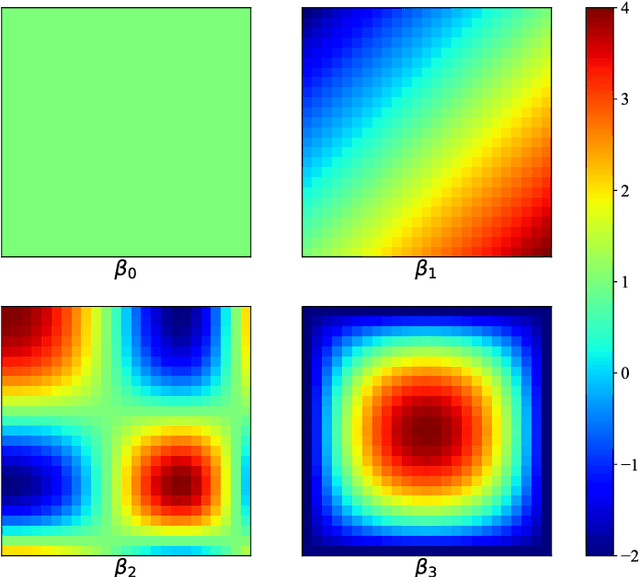GWRBoost:A geographically weighted gradient boosting method for explainable quantification of spatially-varying relationships
Paper and Code
Dec 15, 2022



The geographically weighted regression (GWR) is an essential tool for estimating the spatial variation of relationships between dependent and independent variables in geographical contexts. However, GWR suffers from the problem that classical linear regressions, which compose the GWR model, are more prone to be underfitting, especially for significant volume and complex nonlinear data, causing inferior comparative performance. Nevertheless, some advanced models, such as the decision tree and the support vector machine, can learn features from complex data more effectively while they cannot provide explainable quantification for the spatial variation of localized relationships. To address the above issues, we propose a geographically gradient boosting weighted regression model, GWRBoost, that applies the localized additive model and gradient boosting optimization method to alleviate underfitting problems and retains explainable quantification capability for spatially-varying relationships between geographically located variables. Furthermore, we formulate the computation method of the Akaike information score for the proposed model to conduct the comparative analysis with the classic GWR algorithm. Simulation experiments and the empirical case study are applied to prove the efficient performance and practical value of GWRBoost. The results show that our proposed model can reduce the RMSE by 18.3% in parameter estimation accuracy and AICc by 67.3% in the goodness of fit.
 Add to Chrome
Add to Chrome Add to Firefox
Add to Firefox Add to Edge
Add to Edge